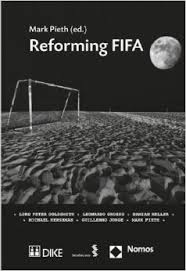Introduction
The first part of the present blog article provided a
general introduction to the compatibility of fixed-term contracts in football
with Directive 1999/70/EC[1]
(Directive). However, as the Member States of the European Union enjoy a
considerable discretion in the implementation of a directive, grasping the
impact of the Directive on the world of football would not be possible without considering
the national context. The recent ruling of the Arbeitsgericht Mainz (the lowest
German labour court; hereinafter the Court) in proceedings brought by a German
footballer Heinz Müller provides an important example in this regard. This second
part of the blog on the legality of fixed-term contract in football is devoted
to presenting and assessing the Court’s decision.
I. Facts and Procedure
Heinz Müller, the main protagonist of this case, was a goalkeeper
playing for 1.FSV Mainz 05 a club partaking to the German Bundesliga. More...
Introduction
On 25 March 2015, the Labour Court of Mainz
issued its decision in proceedings brought by a German footballer,
Heinz Müller, against his (now former) club 1. FSV Mainz 05 (Mainz 05). The
Court sided with the player and ruled that Müller should have been employed by
Mainz 05 for an indefinite period following his 2009 three year contract with
the club which was subsequently extended in 2011 to run until mid-2014. The
judgment was based on national law implementing Directive 1999/70 on fixed-term
work[1]
(Directive) with the latter being introduced pursuant to art. 155(2) TFEU (ex
art. 139(2) TEC). On the basis of this
article, European social partners’ may request a framework agreement which they
conclude to be implemented on the European Union (EU, Union) level by a Council
decision on a proposal from the Commission. One of the objectives of the framework
agreement,[2]
and therefore of the Directive, was to establish a system to prevent abuse
arising from the use of successive fixed-term employment contracts or
relationships[3]
which lies at the heart of the discussed problem.[4]
More...
Ever since UEFA started imposing disciplinary
measures to football clubs for not complying with Financial Fair Play’s break-even requirement in 2014, it remained a mystery how UEFA’s
disciplinary bodies were enforcing the Club Licensing and Financial Fair Play (“FFP”)
regulations, what measures it was imposing, and what the justifications were for
the imposition of these measures. For over a year, the general public could
only take note of the 23 settlement agreements between Europe’s footballing
body and the clubs. The evidential obstacle for a proper analysis was that the
actual settlements remained confidential, as was stressed in several of our
previous Blogs.[1]
The information provided by the press releases lacked the necessary information
to answer the abovementioned questions.
On 24 April 2015, the UEFA Club Financial
Control Body lifted part of the veil by referring FC
Dynamo Moscow to the Adjudicatory Body. Finally, the Adjudicatory Body had the
opportunity to decide on a “FFP case. The anxiously-awaited Decision was reached by
the Adjudicatory Chamber on 19 June and published not long after. Now that the
Decision has been made public, a new stage of the debate regarding UEFA’s FFP
policy can start.More...
…and
everything under the sun is in tune,
but the sun
is eclipsed by the moon…[1]
The issue
Ruffling a few feathers, on 30 May 2015 the FIFA Executive Committee rather unsurprisingly, considering the previous warnings,[2]
adopted a decision to suspend with immediate effect the Indonesian Football
Federation (PSSI) until such time as PSSI is able to comply with its
obligations under Articles 13 and 17 of the FIFA Statutes.[3] Stripping PSSI of its membership rights, the decision
results in a prohibition of all Indonesian teams (national or club) from having
any international sporting contact. In other words, the decision precludes all
Indonesian teams from participating in any competition organised by either FIFA
or the Asian Football Confederation (AFC). In addition, the suspension of
rights also precludes all PSSI members and officials from benefits of any FIFA
or AFC development programme, course or training during the term of suspension.
This decision coincides with a very recent award by the Court of Arbitration
for Sport (CAS) in this ambit, which shall be discussed further below.[4]More...
On 29
May 2015, the Brussels Court of First Instance delivered its highly anticipated
judgment on the challenge brought by football players’ agent Daniel Striani (and
others) against UEFA’s Club Licensing and Financial Fair Play Regulations
(FFP). In media reports,[1]
the judgment was generally portrayed as a significant initial victory for the
opponents of FFP. The Brussels Court not only made a reference for a
preliminary ruling to the European Court of Justice (CJEU) but also imposed an
interim order blocking UEFA from implementing the second phase of the FFP that
involves reducing the permitted deficit for clubs.
A
careful reading of the judgment, however, challenges the widespread expectation
that the CJEU will now pronounce itself on the compatibility of the FFP with EU
law. More...
FIFA’s freshly adopted TPO ban entered into
force on 1 May (see our Blog symposium). Though it is difficult to
anticipate to what extent FIFA will be able to enforce the ban, it is likely
that many of the third-party investors will try to have recourse to alternative
solutions to pursue their commercial involvement in the football transfer
market. One potential way to circumvent the FIFA ban is to use the proxy of
what has been coined “bridge transfers”. A bridge transfer occurs when a club
is used as an intermediary bridge in the transfer of a player from one club to
another. The fictitious passage through this club is used to circumscribe, for
example, the payment of training compensation or to whitewash a third-party
ownership by transforming it into a classical employment relationship. This is
a legal construction that has gained currency especially in South American
football, but not only. On 5 May 2015, in the Racing Club v. FIFA case, the Court of Arbitration for Sport (CAS)
rendered its first award involving directly a bridge transfer. As this practice
could become prevalent in the coming years we think that this case deserves a
close look. More...
Editor's note: This is a short introduction written for the special Issue of the Maastricht Journal of European and Comparative Law celebrating the 20 years of the Bosman ruling and dedicated to the new frontiers of EU law and Sport (the articles are available here). For those willing to gain a deeper insight into the content of the Issue we organize (in collaboration with Maastricht University and the Maastricht Journal) a launching event with many of the authors in Brussels tomorrow (More info here).More...
Editor’s
note: Chuck Blazer declined our official interview request but thanks to some trusted
sources (the FIFA indictment and
Chuck’s testimony) we
have reconstructed his likely answers. This is a fictional interview. Any resemblance with real facts is purely coincidental.

Mr
Blazer, thank you for agreeing to this interview, especially considering the
circumstances. How are you doing?
I am facing ten charges concerning, among others,
conspiracy to corrupt and money laundering. But apart from that, I am doing
great (laughs)!
It is
good to know that you have not lost your spirit. And since you’ve been involved
in football, or as you call it soccer, for years could you please first tell us
what was your career at FIFA and its affiliates like?
Let me see… Starting from the 1990s I was employed by and
associated with FIFA and one of its constituent confederations, namely the
Confederation of North, Central American and Caribbean Association Football (CONCACAF).
At various times, I also served as a member of several FIFA standing
committees, including the marketing and television committee. As CONCACAF’s
general secretary, a position I proudly held for 21 years, I was responsible,
among many other things, for negotiations concerning media and sponsorship
rights. From 1997 to 2013 I also served at FIFA’s executive committee where I
participated in the selection process of the host countries for the World Cup
tournaments. Those years at the helm of world soccer were truly amazing years
of travel and hard work mainly for the good of the beautiful game. I might add
that I even managed to document some of my voyages on my blog. I initially
called it “Travels with Chuck Blazer” but Vladimir (Putin) convinced me to
change the name to “Travels
with Chuck Blazer and his Friends”. You should check it out.
More...
UEFA announced on 8
May that it had entered into Financial Fair Play settlement agreements with 10 European
football clubs. Together with the four other agreements made in February 2015, this brings the total to 14 FFP
settlements for 2015 and 23 since UEFA adopted modifications in its Procedural
rules and allowed settlements agreements to be made between the Clubs and the Chief
Investigator of the UEFA Club Financial Control Body (CFCB).[1]
In the two years during
which UEFA’s FFP regulations have been truly up and running we have witnessed the
centrality taken by the settlement procedure in their enforcement. It is
extremely rare for a club to be referred to the FFP adjudication chamber. In
fact, only the case regarding Dynamo Moscow has been referred to the adjudication chamber. Thus, having
a close look at the settlement practice of UEFA is crucial to gaining a good
understanding of the functioning of FFP. Hence, this blog offers a detailed
analysis of this year’s settlement agreements and compares them with last year’s settlements. More...
Editor’s note: This short book review will be
published in a different format in the International Sports Law Journal, due to
its timeliness we decided to reproduce it here.
Reforming
FIFA, or Not
Antoine Duval
Book Review: Mark Pieth
(ed.), Reforming
FIFA, Dike Verlag, St. Gallen, 2014, 28.00 CHF, p.178

This
book looks back at the work of the Independence Governance Committee
(IGC). This Committee, constituted in 2011, had as
primary objective to drive a reform process of FIFA initiated by its President
Sepp Blatter. After ordering from the Swiss anti-corruption expert Mark Pieth,
a report
on the state of FIFA’s governance, FIFA decided to mandate him with the leadership
of a consulting body composed of a mix of independent experts and football
insiders, which would be accompanying and supervising the internal reform
process of FIFA. The IGC was officially dissolved
at the end of 2013, after completing its mandate. The book is composed of eight
chapters, written by former members of the IGC, including former chairman Mark
Pieth. In addition to the chapters, it includes the different reports
(available here,
here
and here)
submitted by the IGC to FIFA across the years. In the words of Pieth, this
account is “fascinating because it gives a hands-on, realistic perspective of
the concrete efforts, the achievements and the remaining challenges in the
struggle for the reform of this organization [FIFA], avoiding the usual
glorification or vilification.”[1]
This review will first summarize the core of the account of the FIFA reform
process provided by the book, before critically engaging with the outcome of
the process and outlining the deficiencies that culminated on 29 May 2015 with
the re-election of Sepp Blatter as FIFA president.More...